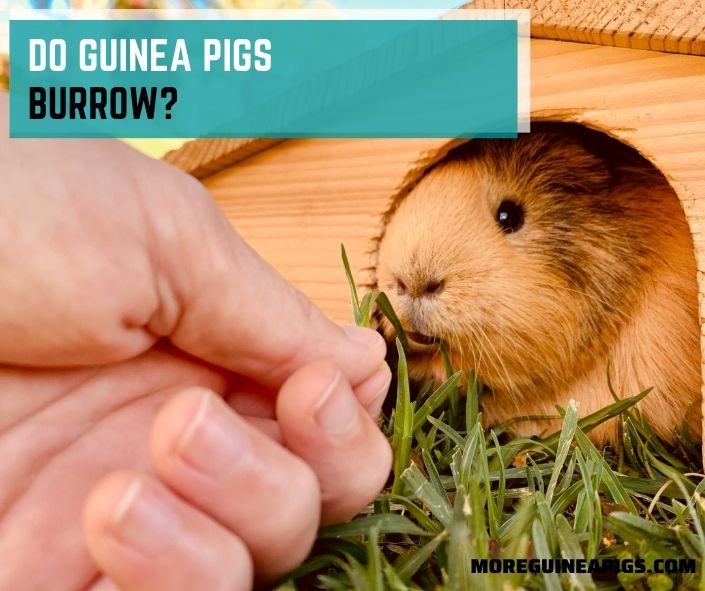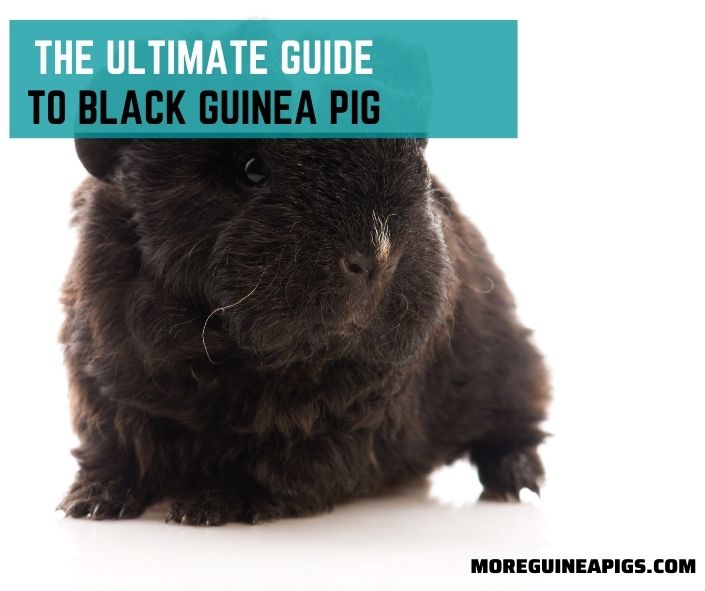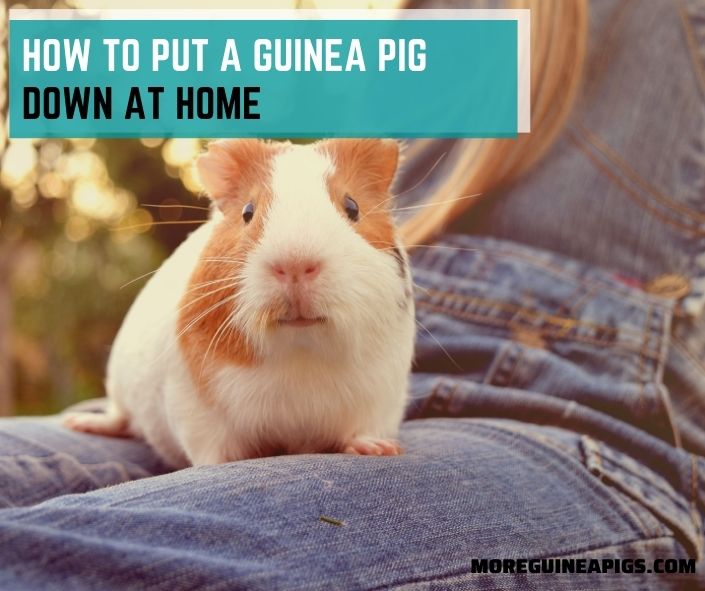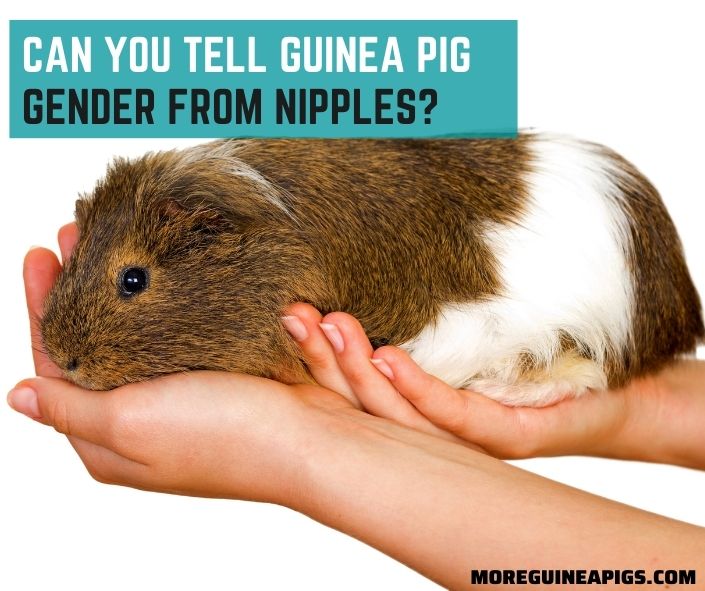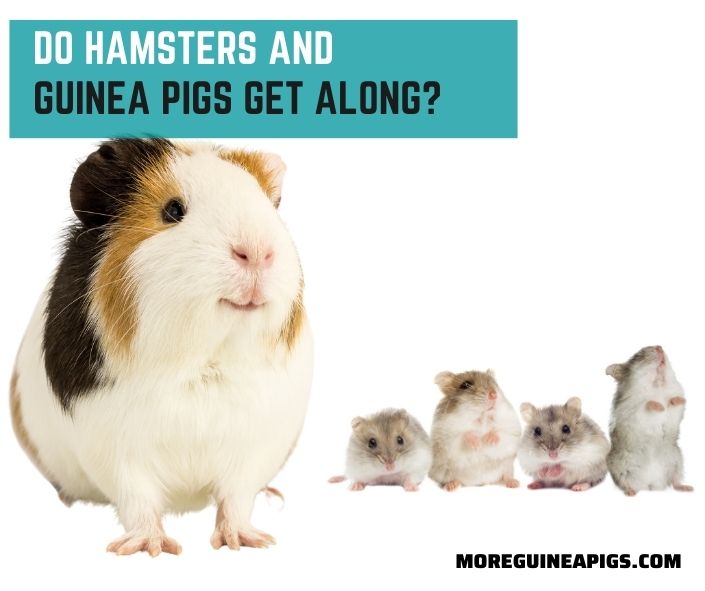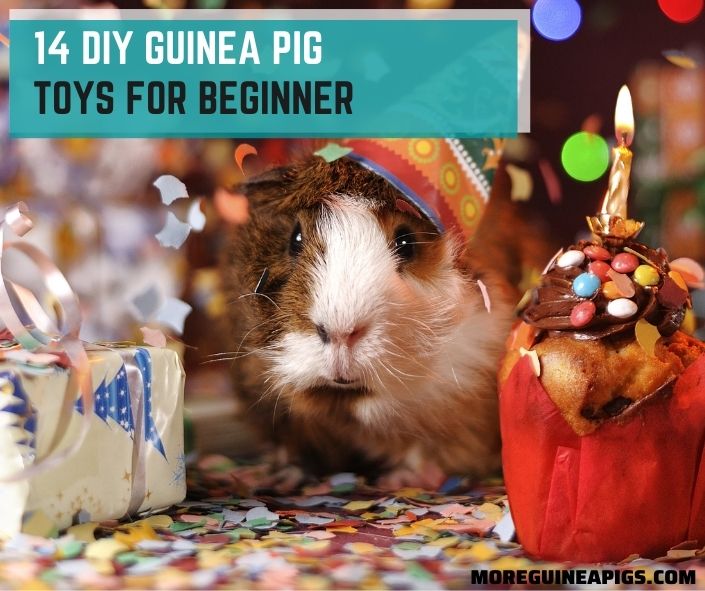Do Guinea Pigs Burrow?
Guinea pigs are cute and cuddly pets but sometimes, their behavior can be baffling.
As a guinea pig owner, you might have found yourself wondering ‘do guinea pigs burrow?’ After all; guinea pigs are rodents and most rodent species are burrowers.
Perhaps your pet guinea pig is displaying this behavior.
If you are curious about why your pet has suddenly started burrowing, read on for the probable causes and what you can do about it.
Do Guinea Pigs Burrow?
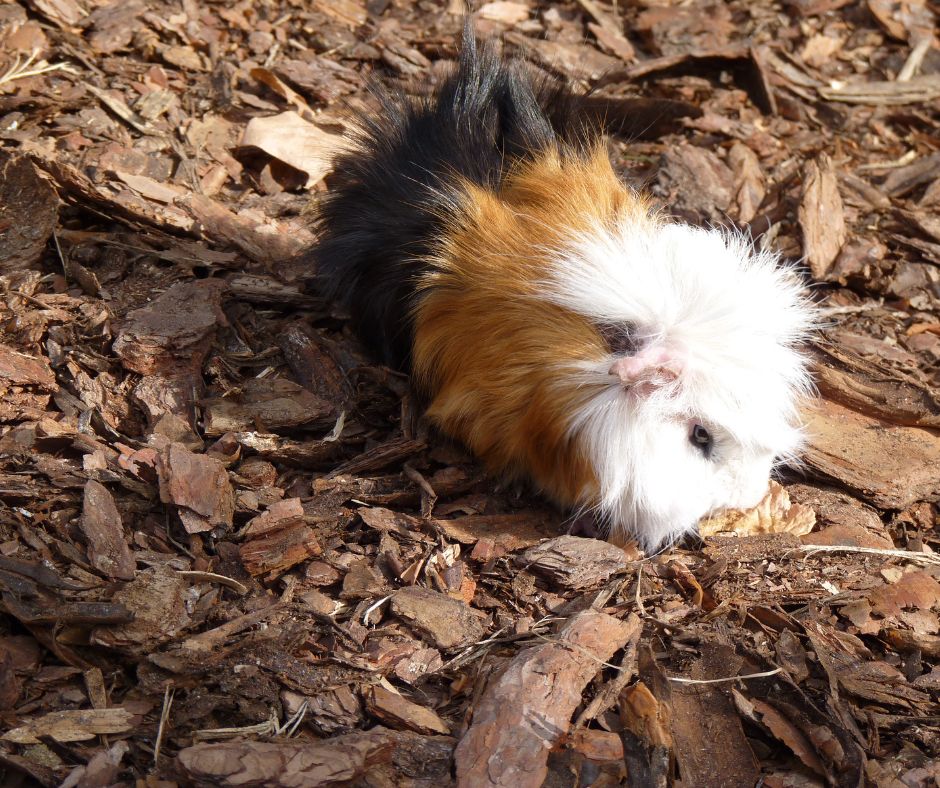
In the wild, guinea pigs do not usually burrow unlike other rodent species like hamsters and rats.
However, they are known to re-use the burrows and tunnels already existing in nature (usually created by other burrowing animals) to hide and keep themselves safe from aerial and land predators.
Despite their lack of ability to burrow, guinea pigs are still able to build elaborate nests. They do this by using their strong front legs to gather materials and build up a comfortable nest area.
Guinea pigs are social animals and prefer to live in close proximity to other guinea pigs. As such, their nests often become communal areas where several guinea pigs will sleep and spend time together.a
Why Don’t Guinea Pigs Burrow?
There are a few reasons why guinea pigs don’t burrow. One reason is that they lack the physical ability to do so. Their bodies are simply not built for it. Another reason is that guinea pigs don’t have the instinct to burrow.
This is likely because they are not native to environments where burrowing would be necessary for survival.
In captivity, pet guinea pigs may or may not burrow. If you have provided your pet with hideouts like artificial caves, hammocks, etc., then it might hide inside these.
Occasionally, a pet guinea pig might “burrow” in its fleece, bed, blanket, or the new floor substrate in its cage or enclosure.
Burrowing helps your guinea pig create a more comfortable surface inside the new bedding. It may also burrow to look for dropped food pellets in its substrate.
In The Wild
There are several reasons why guinea pigs don’t burrow, unlike other rodent species. Burrowing is typically seen in solitary rodents and guinea pigs aren’t solitary.
The act of burrowing is also labor intensive. Here are the main reasons why guinea pigs don’t burrow:
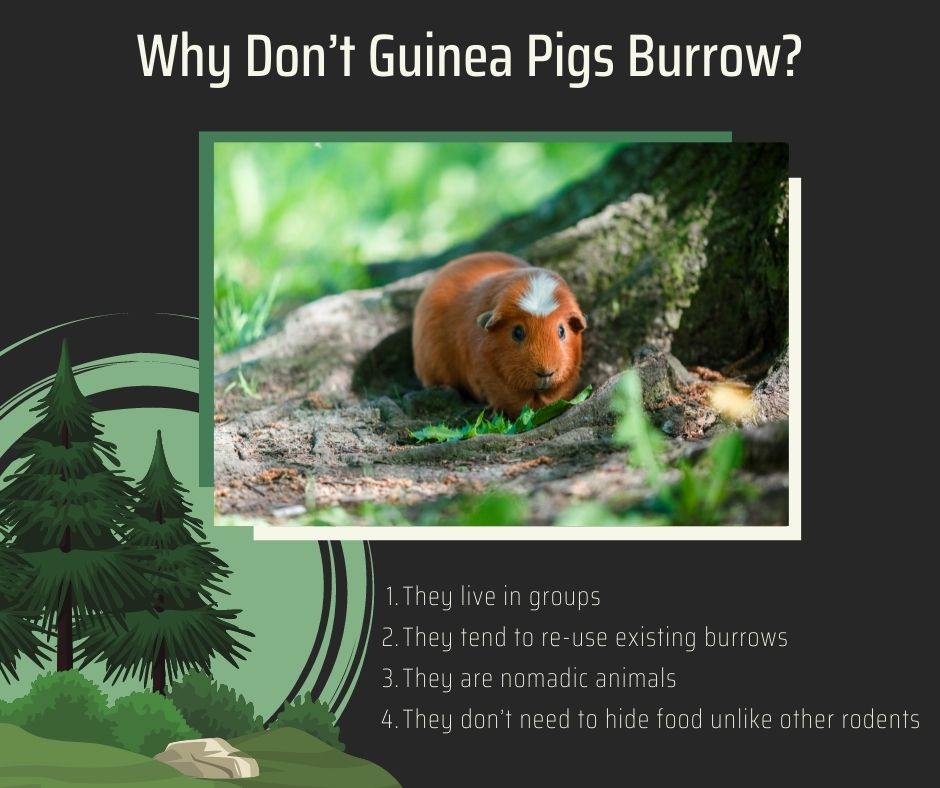
- They live in groups
Guinea pigs are social critters that live in groups of 4 and more. They follow a social hierarchy.
The act of burrowing or digging is mainly seen in solitary animals that need the protection of burrows and tunnels to keep them safe from aerial and terrestrial predators.
In guinea pigs, no division of labor is observed and burrowing does not fit normal behavior.
- They tend to re-use existing burrows
Burrowing is a labor-intensive process; it takes time to create a spacious burrow or tunnel in the wild.
Guinea pigs prefer using already existing caves and the underground networks of tunnels and burrows created by other animals. They themselves do not create burrows or tunnels and aren’t equipped for digging.
- They are nomadic animals
This is probably the main reason why guinea pigs do not burrow. These nomadic creatures move from one place to another in the search of food.
So, it makes no sense for them to create tunnels and burrows. As such, they are quite incapable of burrowing.
- They don’t need to hide food unlike other rodents
Guinea pigs mainly survive on grasses, fruits, and leaves in their native habits of South America. They do not need to store these foods nor do they need to hoard or hibernate in winters.
This is one of the main reasons why they don’t need burrows, unlike other creatures who need burrows and caves to hoard their food.
In Captivity
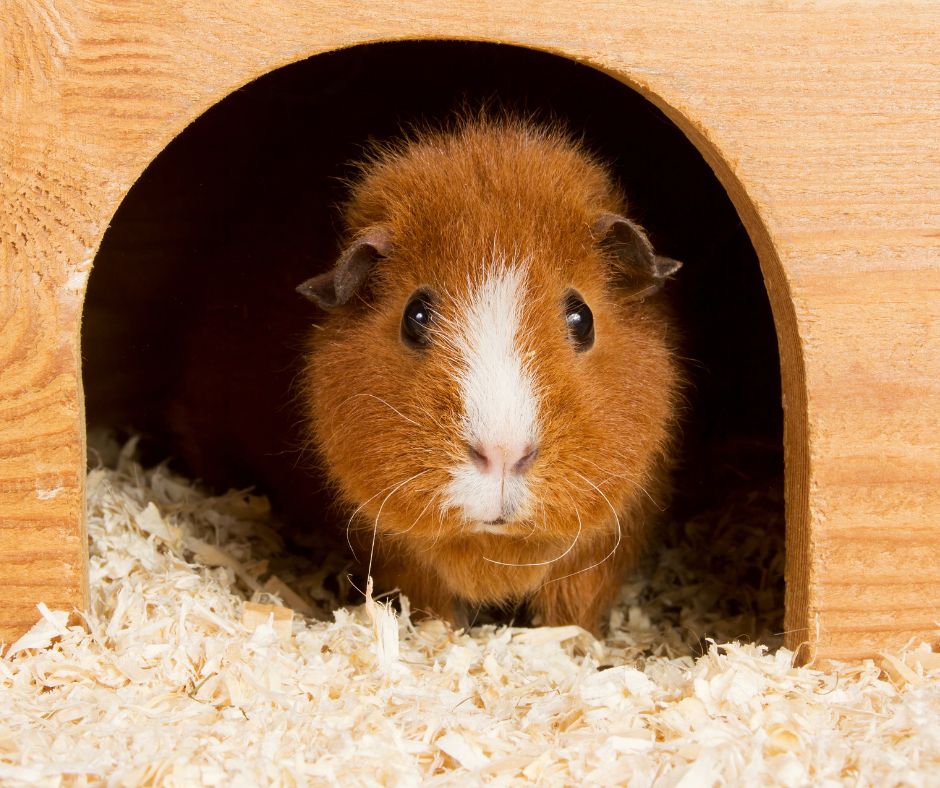
Guinea pigs don’t burrow because they are tame, domesticated animals. They have nothing to fear and use the cage hideouts. Here are the main reasons why guinea pigs do not burrow:
The Incas may have domesticated guinea pigs almost 3000 years ago! They are tame animals with human-friendly, sweet, and harmonious personalities.
Sure, they may retain some of their wild or instinctual behaviors. Occasionally they may dig or burrow in their substrate.
After all; this type of burrowing (if you can call it that!) is a lot less difficult than moving hard mounds of earth and rocks.
They may dig through their floor substrate to find food pellets or to create a comfortable nook. But you won’t find them digging the mud or earth when you let them out in the run.
Pet guinea pigs do not usually bother creating burrows as they have no predators to fear. They may feel safe and secure in their enclosure and live happily.
Most guinea pig owners provide several hideouts like hammocks, tubes, pipes, and caves for their pets. The tiny critters may use them to hide and sleep comfortably eliminating the need for burrowing.
This is also why you might occasionally see your pet burrowing under the fleece or bedding to make it more comfortable.
Why Do Guinea Pigs Hide?
There are several reasons why a guinea pig might hide. You might notice your pet hiding in the corner, under its fleece, bedding, or in the hideouts provided in the cage.
Typically, hiding is a natural behavior which means that your pet simply wants some ‘quiet’ downtime.
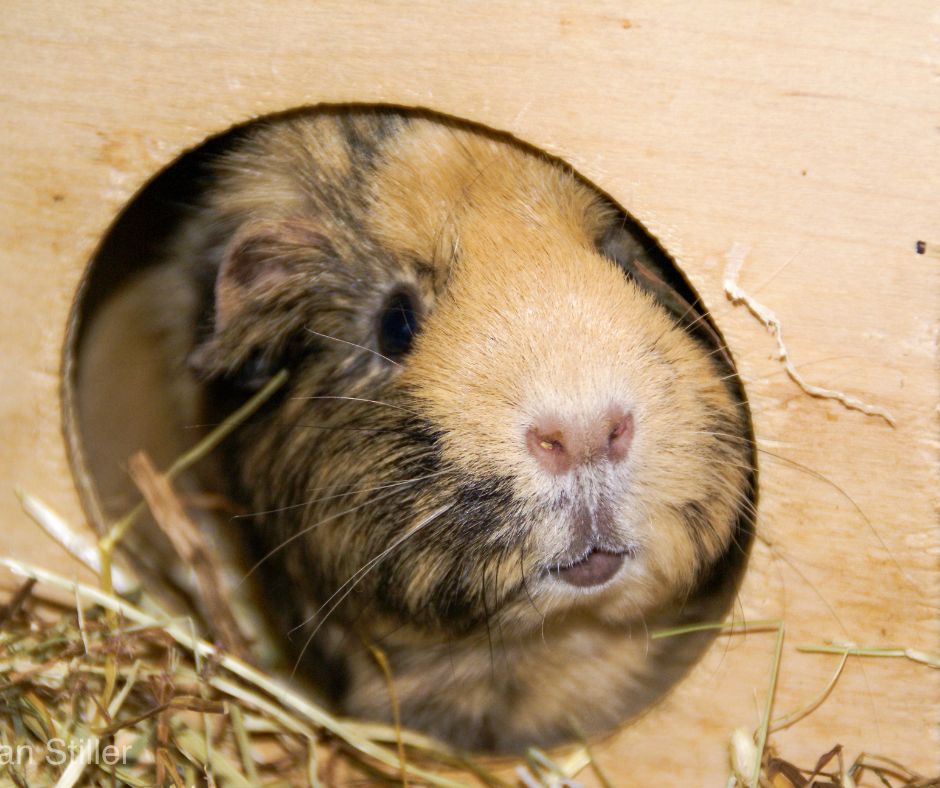
- To sleep, rest, or get more comfortable
Every critter needs rest and hiding is a way to avoid bright lights and loud noises. Your guinea pig might typically hide during the day and get more active at night.
Sometimes, the hideout or cave or hammock it hides in may be warmer and cozier and your pet may be simply trying to get more comfortable.
- To relieve stress
If your piggy hides all the time, it may be scared, anxious, or stressed.
Have you changed something in your pet’s cage? Perhaps a new toy or cage decoration or loud noises or bright lights could be the cause of stress.
If your guinea pig is shy or you have recently purchased it, it might hide until it adjusts to the new environment. This is completely normal.
- To get away from aggression or bullying
If you have housed together multiple piggies, the one that hides constantly may be bullied by another larger or older pig. Observe your pets and, if needed, separate them temporarily.
- Due to a health issue
In rare cases, your guinea pig may be sick or injured. Pain and discomfort due to an illness or injury may trigger hiding behavior in an otherwise social and friendly piggy. Do not hesitate to take your buddy to the vet immediately.
Can Guinea Pigs Dig Out and Escape?
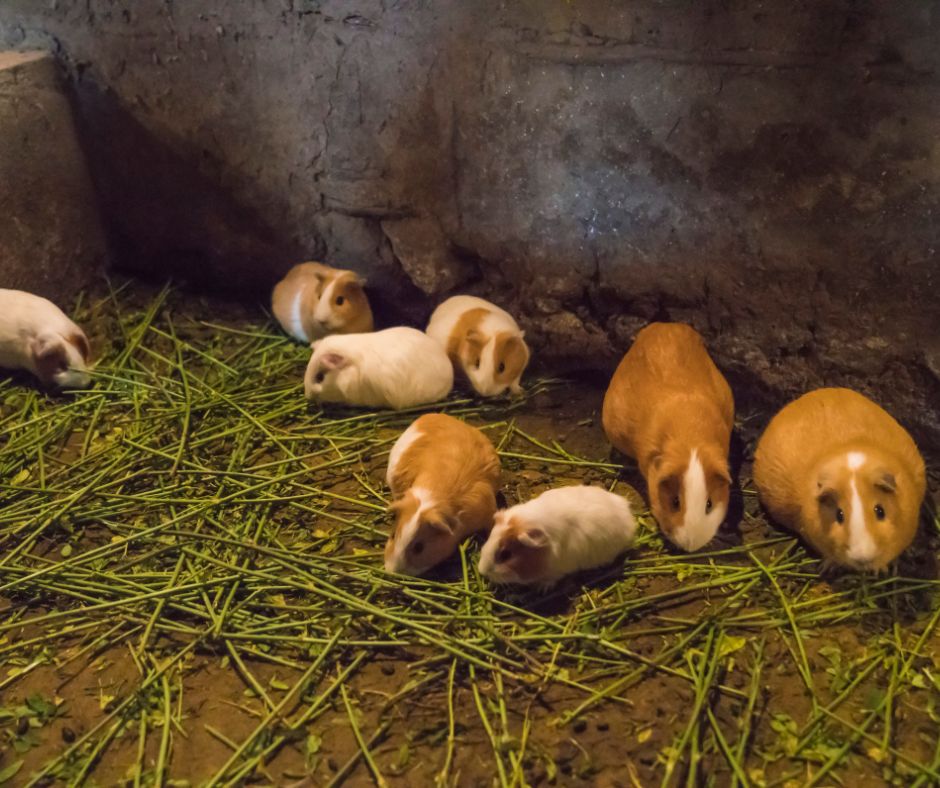
Most guinea pig owners who ask this question do so when they want to let their pet outside in its run for exercise.
The good news is that guinea pigs cannot dig through the mud and experienced cavy owners will vouch for that. These animals are just not ‘equipped’ for digging and burrowing through hard mud.
If you have placed your pet’s cage outdoors or are letting it out in the garden for some exercise, it is best to supervise your buddy.
Guinea pigs might not be able to dig through hard soil but they are capable of squeezing out through tiny gaps in their cages.
So, always secure the play area and supervise your pet for the duration it is outside.
If your pet’s cage is outdoors, line it with cage liners and a large amount of bedding or substrate.
This way, your pet cannot escape and it will also deter other animals from entering the cage. Lining the cage also prevents moisture from the ground from harming your pet.
If you have placed your guinea pigs’ cage indoors, then you have no reason to worry about it digging out to escape. Your pet might burrow in its substrate or bedding but it cannot ‘dig’ itself to escape.
Kaytee Clean & Cozy White Bedding Pet For Guinea Pigs
Key Takeaways – Do Guinea Pigs Burrow?
Burrowing is not a common activity in guinea pigs, unlike other rodents. They are social animals that live in groups and don’t need to hide their food. They also move a lot.
Occasionally, they may reuse already-existing burrows and tunnels of other animals.
Sometimes, you might find your pet guinea pig burrowing under its fleece or bedding to hide, rest, or feel more comfortable. It might also dig through the cage substrate to search for dropped food pellets.
We hope this guide helps you decipher your pet’s behavior.
